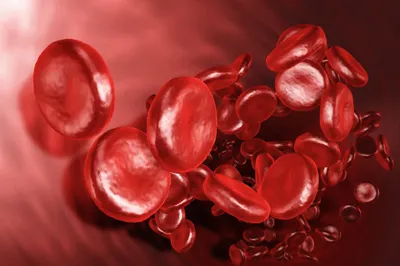The website of Dr. Ginger Garner explains that your diaphragm “measures mere millimeters in thickness,” but it has sweeping influence over bodily systems that can “ultimately dictate your long-term health and well-being.”
If you’re having any kind of health problem, you may want to start with your diaphragm – which is located just below your lungs. In particular, you should focus on your quality of breathing (which the diaphragm is associated with). “Learning to control the breath can also have the quickest effect on your overall health,” it adds. Here are ? links between your diaphragm and your overall health…
1. Pain Perception
A study posted on PubMed.gov examines the relationship between perception of pain and deep, slow breathing (DSB). The study looked at 2-different DSB techniques – one “attentive” group whose subjects were guided in their breathing, a task requiring “a high degree of concentration and constant attention,” and the “relaxing” group, whose subjects could be at ease during the breath training.
Pain thresholds (how much pain one can handle) showed a “significant increase” in the relaxed group, whereas no positive changes were measured in the attentive group, it explains. However, both groups noted improvements in tension, anger, and depression, adds the source. “Our results suggest that the way of breathing decisively influences autonomic and pain processing,” it notes.
2. Digestion
OsteopathyWoolwich.com explains that your food is digested through 2-main processes – the parasympathetic nervous system “which is switched on by abdominal breathing,” and the other, which is the movement of the diaphragm muscles that “massages” the digestive organs and leads to more effective digestion.
Those who underuse their diaphragm or aren’t breathing effectively could be at higher risk for digestion-related problems such as irritable bowel syndrome and reflux, notes the source. So if you’re experiencing chronic digestive problems, just take a deep breath – and keep taking them.
3. Circulation
Dr. Garner’s site (gingergarner.com) notes there’s also a connection between your diaphragm and your cardiovascular health. It notes the diaphragm “is connected to the vagus nerve by way of the phrenic nerve,” meaning improved heart rate and blood pressure can be influenced simply by improving your breathing.
“If you want to control your heart rate, pulse, and blood pressure without drugs, then the diaphragm is the FIRST STOP to better cardiovascular and cardiopulmonary health,” explains the source.
4. Proper Posture
Healthline.com notes that proper breathing from your diaphragm can affect even how straight you stand or sit. Many people breathe from the chest, which uses “secondary” muscles in the neck and collarbone. “When this breathing pattern is accompanied by poor posture, many muscles in your upper body lose their ability to properly function.” it explains.
Tight “accessory” muscles around the chest can cause your shoulder to be rounded forward and your neck to stick out from the strain, it adds. This leads to a weakened back, which is important in helping maintain a proper posture. In short, learning proper breathing from the diaphragm can help you restore a straighter back.
5. Sleep Apnea
This is a condition that affects about 22-million Americans, and can interrupt breathing during rest which ultimately leads to a decreased quality of sleep, leaving the sufferer feeling tired the next day. Worse yet, WebMD says sleep apnea has been linked to a higher risk of many serious diseases from heart disease to Type 2 diabetes.
Meanwhile, Dr. Garner notes that “sleep is another big predictor of future health” and that the diaphragm is “intimately connected” with the trigeminal system (responsible for sensations in the face and jaw function) via the hypoglossal nerve. This connection could be associated with sleep apnea and poor swallowing, as the hypoglossal nerve “supplies the floor of the mouth,” it adds.
6. Heightened Anxiety
Many sources note the connection between proper breathing and reducing anxiety and panic attacks, but one site called eiriu-eolas.org (which translates to “Growth of Knowledge) boldly claims “it’s very easy to deal with your anxiety using your vagus nerve”. We’ve already established a connection between the diaphragm and the vagus nerve, but the source dives into it further.
The source notes the vagus nerve “acts as the mind-body connection, and it is the cabling behind your heart’s emotions and gut instincts”. It says you can stimulate the “calming nervous pathways” via your vagus nerve by learning proper diaphragmatic breathing techniques, immersing your face in cold water, exhaling against a close airway (pinch your nose with your mouth closed and attempt to breathe out), or singing. Practice will help you automatically resume abdominal breathing when you’re facing stress, it adds.









